Two-Year-Old Killed In Iran As Police Open Fire At Family Car
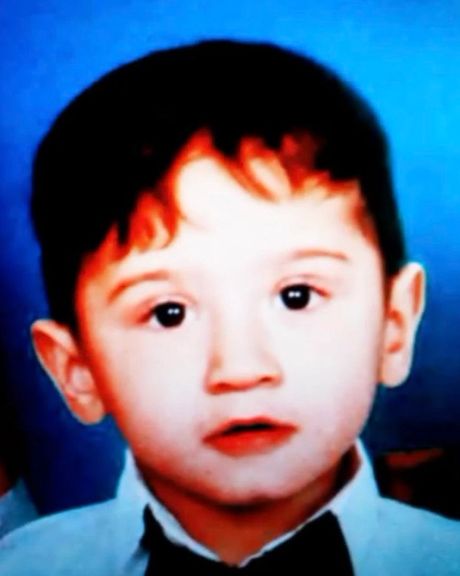
A two-year-old child was killed on Friday after Iranian special forces opened fire at the car carrying him and his family in the central city of Esfahan.

A two-year-old child was killed on Friday after Iranian special forces opened fire at the car carrying him and his family in the central city of Esfahan.
The "1500 Images" Twitter account reported that “Last night [Friday], a mother and father with two young children were traveling in a car when a truck belonging to the special unit swiveled in front of them. The driver of the car (a family friend) thought the truck driver was sleepy, so he decided to go around the truck. But the special forces opened fire at them and killed the child by shooting him in the head.”
"Bazaar Civil Protest" Telegram channel identified the child as Amirali Musa-Kazemi, adding that he was killed as his family and several friends were on a recreational trip to Esfahan.
According to the report, the special unit's vehicle was a "truck unlike police cars" and the forces in it fired at the car without warning them to pull over.
It remains unclear why the special police unit opened fire at a car carrying ordinary citizens and children.
It is stated in the report that Amir-Ali's body was not handed over to his family under the pretext of handing it over to them in Tehran. The cause of death was registered as "unintentional murder".
Police officials are yet to react to the report.
This is not the first time children are killed by regime forces’ direct fire in private cars.
In the most controversial case, Kian Pirfalak, a 9-year-old child from Izeh in the south, was killed by the direct fire of government forces during nationwide protests on November 16.
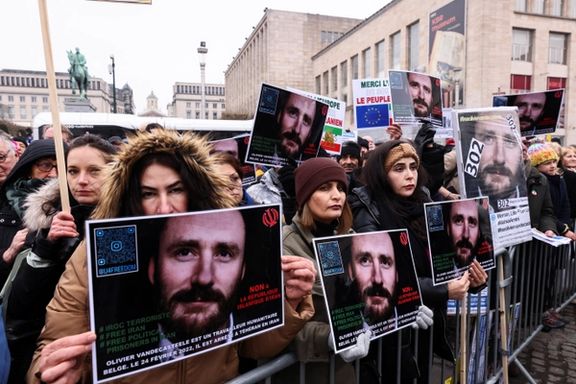
Belgium's Constitutional Court has rejected a request to annul a prisoner exchange treaty with the Islamic Republic that can lead to the release of an Iranian diplomat.
The constitutional court said in a press release Friday that "The Court rejects the action for annulment," a decree that could lead to Iranian diplomat Assadollah Assadi, convicted of terrorism, being swapped for Belgian aid worker Olivier Vandecasteele, held hostage in Iran.
“The Court rejects the appeal against the law assenting to the Belgian-Iranian treaty, but the victims of a convicted person must be informed of his transfer so as to be able to submit this for the review of the legality by a judge,” read the statement.
The court added that “This balancing act must be made in a concrete case and on a case-by-case basis, and must be open for judicial review. It is up to the competent judge (in principle the Court of first instance), with respect for the separation of powers, to review the legality of the decision of the Government authorizing the transfer of a person detained in Belgium towards a foreign State of which it is a national.”
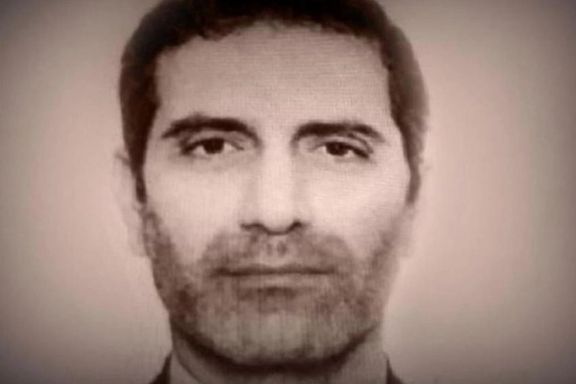
The temporary ban on the extradition of the convicted diplomat was announced by the Brussels Court of Appeal late in July following numerous complaints after the Belgian Parliament ratified a controversial prisoner swap treaty with Iran on July 20. The Iranian exiled opposition group Mujahedin-e Khalq Organization (MEK) mounted a fierce campaign against the deal, challenging the possible extradition. "The court has now declared the plaintiffs' question unfounded," said lawyer Khloë Georgiev, who represents Vandecasteele. In June, Belgian MPs ratified a deal to allow the exchange. At the time, Prime Minister Alexander De Croo argued that it was the only way to get Vandeesteele back home safely.
The Islamic Republic’s judiciary sentenced Vandecasteele, who was detained in 2022, to 40 years in prison and 74 lashes for alleged “spying and cooperation with the United States, money laundering and smuggling $500,000 out of Iran.” Vandecasteele, 41, has served in various international humanitarian organizations since at least 2006, including, Médecins du Monde, Norwegian Refugee Council (NRC), and Relief International. He worked in Iran for humanitarian organizations for more than six years and left the country. Later, he was lured back by “a girlfriend” and was detained in February 2022. A spokesman for Vandecasteele’s family said in December that he should serve up to 28 years in prison.
In a statement released late in February, Amnesty International said Iranian authorities are subjecting Vandecasteele to enforced disappearance, torture and other ill-treatment, urging all states whose nationals are or have been detained at any point in Iran to promptly examine whether the deprivation of liberty amounts to an act of hostage-taking, and if so, take all appropriate measures to ensure accountability. Currently, at least 16 foreign citizens, most of whom dual nationals, are detained in the prisons of the Islamic Republic.
Assadi, 50, a former attaché at the Iranian embassy in Austria, was convicted of plotting to bomb a gathering of the MEK near Paris on June 30, 2018. The only Iranian diplomat ever brought to trial in Europe for direct involvement in terrorism was arrested in Germany, where he did not enjoy diplomatic immunity, while he was on holiday. German authorities later extradited Assadi to Belgium.
Some Belgian lawmakers voiced concern that the prisoner exchange treaty might lead to "hostage diplomacy" and put other Belgians at risk of detention.
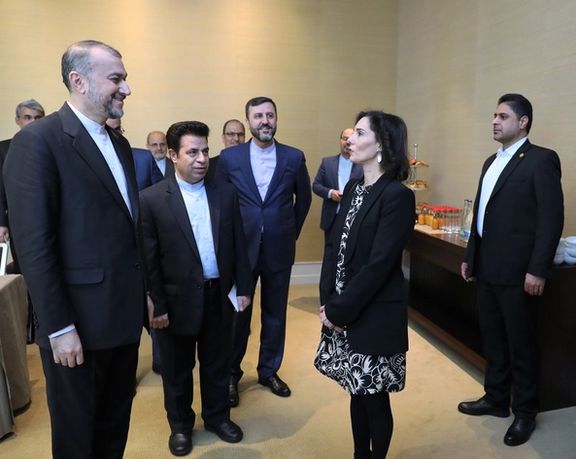
On Monday, February 27, Belgian Foreign Minister Hadja Lahbib held a meeting with the Islamic Republic’s Foreign Minister Hossein Amir-Abdollahian hours before tens of participants at the UN Human Rights Council walked out when Akir-Abdollahian spoke at the 52nd session of the body at UHRC’s headquarters in Geneva.
The meeting between the Belgian and Iranian ministers drew heavy criticism by many activists and officials, including Belgian lawmaker Darya Safai, who pointed out that “The Belgian government goes along with hostage diplomacy.” Lahbib herself tweeted about the release of Vandecasteele, who was probably the main reason for the meeting.
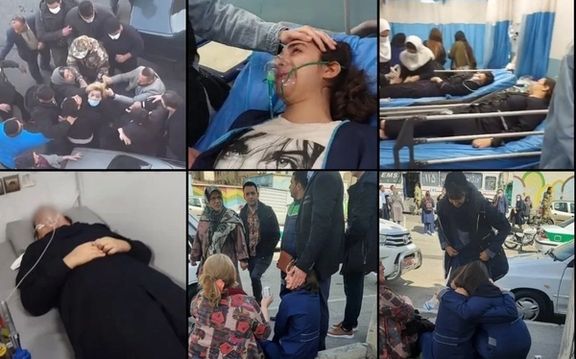
Faced with international outcry for inaction over the chemical gas attacks on school and university girls, the Islamic Republic authorities have started to blame them on “enemies.”
Iranian President Ebrahim Raisi on Friday described the wave of poisonings of hundreds of schoolgirls around the country as part of a psychological war by the enemies meant “to instill stress and anxiety among students and parents, creating chaos.” He did not say who those enemies are but in the Islamic Republic jargon, the ‘enemies’ usually mean as the United States and Israel, and recently every entity and individual who has expressed support for the current wave of antiregime protests.
“One day, the enemies instigate street riots and another day they try to create problems in the field of education and schools because despite all the plots, people across the country came to the scene and defeated the enemy,” he said, and then referred to state-sponsored demonstrations in February to mark the 44th anniversary of the regime as a victory.
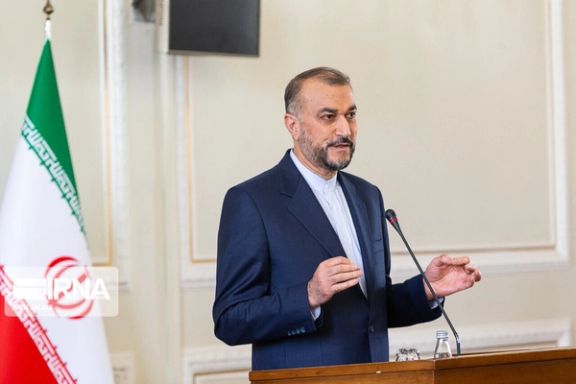
Foreign Minister Hossein Amir-Abdollahian on Friday also hit out at Western governments. “The interventionist reaction of some Western authorities to the question of the suspected poisoning of dear Iranian female students is the continuation of the enemy's hybrid war,” he wrote in a Twitter post.
He claimed that “the relevant institutions of the country are following up seriously and meticulously examining its dimensions. The great nation of Iran knows crocodile tears very well!” He made the remarks as the authorities have not yet allowed media or parents to view the content of surveillance cameras around the schools, which were attacked.
The so-far unexplained poisonous gas attacks at about 60 schools and girl dormitories in one-third of the country’s provinces began November 30 when the first case of poisoning among schoolgirls was reported in the religious city of Qom. Around 1,000 students have become ill with the mysteriously dispersed, unidentified fumes so far. The country's interior minister, Ahmad Vahidi, an ex-IRGC top officer wanted by Interpol for his part in the bombing of a Jewish community center in Buenos Aires in 1994, has been tasked with leading the investigation, though he has so far denied fowl play.
Many suspect the schools have been targeted by religious groups opposed to girls' education. The authorities have also denied reports that the death of 11-year-old Fatemeh Rezaei was linked to the poisonings.
Iran's Foreign Ministry spokesman Nasser Kanaani urged other countries not to comment on the issues in Iran and described the calls for investigations by right groups and officials as “interventions and dramatic” statements.
Meanwhile, even religious leaders – both Shiites who are among the inner circles of the regime and Sunnis such as Mowlavi Abdolhamid -- have spoken out against government’s inadequate reaction to the poisonings.
Tasnim news agency, affiliated with the Revolutionary Guards, cited Reza Karimi Saleh, the deputy governor of Pardis suburb where one of the attacks happened as saying that a fuel tanker driver was arrested because he was next to a school and had also been spotted in two other cities. "Guards at a parking lot where the fuel tanker was parked also suffered from poisoning."
Many have started questioning the efficiency of the intelligence agencies, which are very fast in identifying protesters and arresting them, while others say those responsible for the gas attacks are not identified because the regime already knows they are insiders.
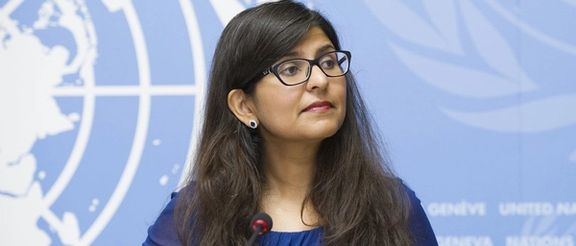
In Geneva, the United Nations human rights office on Friday called for a transparent investigation into the attacks. Ravina Shamdasani, spokesperson for the UN High Commissioner for Human Rights said on Friday that "We're very concerned about these allegations that girls are being deliberately targeted under what appear to be mysterious circumstances.” She said that the findings of a government investigation should be made public, and the perpetrators brought to justice.
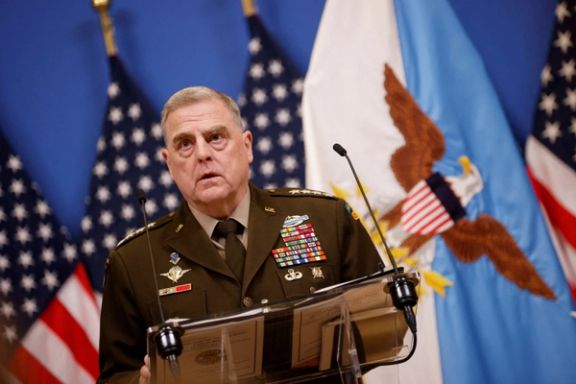
Israel hosted the top US military officer, General Mark Milley, Friday for discussions that it said included the need for cooperation to deny Iran nuclear weapons.
Milley made the previously unannounced visit ahead of a trip to Israel by US Defense Secretary Lloyd Austin that will also include neighboring Egypt and Jordan - US-aligned Arab states that have influence on Israeli-Palestinian affairs.
"Ongoing cooperation is required in order to prevent Iran from gaining a nuclear weapon," Israeli Defense Minister Yoav Gallant's office quoted him as telling Milley, chairman of the US Joint Chiefs of Staff.
Milley made no public remarks in Israel. His spokesperson said Milley discussed regional security issues and "coordination to defend against threats posed by Iran" in his talks with Chief of the Israeli General Staff Lieutenant General Herzi Halevi.
Amid its long-stalled negotiations with world powers on renewing a 2015 nuclear deal, Iran has made advances with technologies that could potentially yield it a bomb. Tehran denies having any such plan.
In January, the United States and Israel held what one US official described as the allies' most significant joint military exercise to date, involving thousands of forces, a dozen ships and 142 aircraft, including nuclear-capable bombers.
Milley's trip also comes amid spiraling violence in the West Bank, with stepped-up Israeli military raids following a spate of Palestinian attacks. Fears of escalation ahead of the Muslim holy month of Ramadan and the Jewish Passover festival have prompted the United States, Jordan and Egypt to appeal for calm.

A few political figures across the Iranian political spectrum have condemned chemical attacks on hundreds of female students in several cities in Iran.
Government officials and most lawmakers are still either silent or making vague statements about the attacks often denying that they represent a serious danger to thousands of students.
Meanwhile, a seasoned journalist and lecturer on media has criticized state officials and the media for their inaction in the face of the criminal attacks.
Prominent conservative cleric Abdollah Javadi Amoli said in a meeting with the Minister of education on Thursday that "It is horrendous that officials have not pinpointed the origin of the attacks after three months since the students were gassed in Qom in October. He warned the minister that people will judge officials based on what they do rather than what they say.
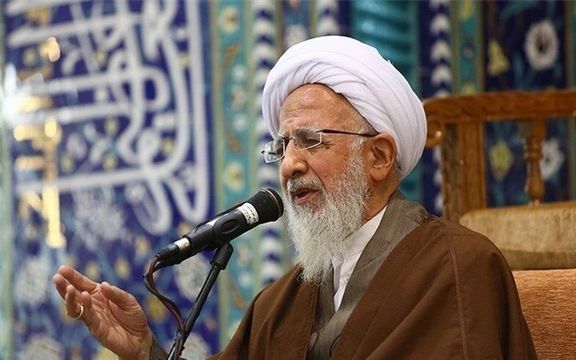
Probably pointing out allegations about government forces being involved in the gas attacks, the cleric said military power works in the war front, but what works at schools is education. You cannot correct people's behavior using weapons.
Meanwhile, former reformist lawmaker Tayebeh Siavashi also said in an interview with Etemad Online that it is still not known why the government has not informed the media and the public of the results of toxicological reports. She said the officials behave in a way as if they have just woken up now and found out about the gas attacks.
She also criticized the government for keeping silent about the attacks until they became so widespread that everyone found out about them.
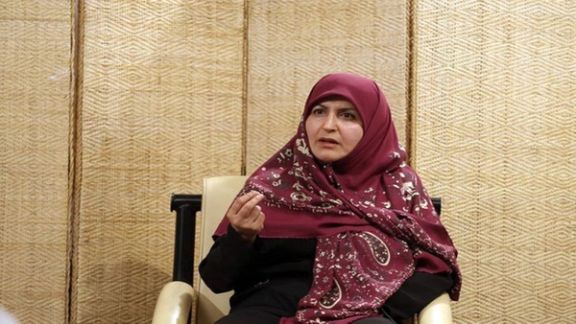
Another cleric and former Reformist lawmaker Ahmad Mazani said in an interview with Rouydad24: "Fanatics in the pre-Islamic period buried girls alive. Gas attacks on girls in modern times is another way of expressing opposition to women's presence in the society." He added that attacks are at the same time a psychological warfare against women and their families to dissuade them from sending their daughters to school.
Mazani also criticized officials for their silence about the attacks for a long time after they started. This is an important issue and Iranian families are deeply worried about it, so, the government should begin news dissemination about the attacks. Mazani added that the government should apologize to the nation for its silence. He also called on top clerics to speak out in the face of fanatic behavior and the advocacy of religious extremist and Taliban-like ideology in Iran.
In another development, prominent journalist and lecturer on journalism Fereydoun Sedighi in an interview with Khabar Online harshly criticized the government media and state officials for their inaction and wrong behavior. However, he added that media in Iran are no longer the people's point of reference for news because they have always published or broadcast official jargon about various developments.
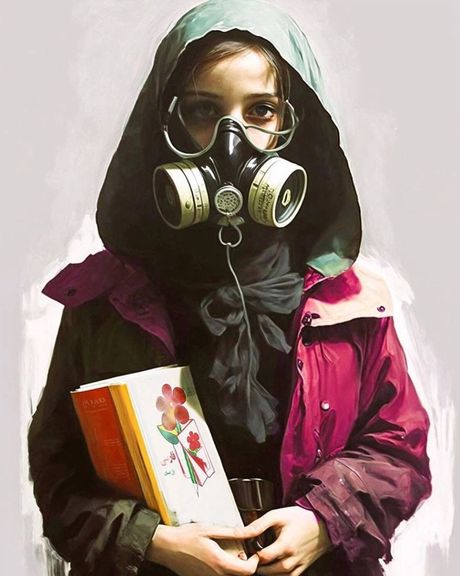
Sedighi charged that not only Iranian officials are not accountable for what they say and do, they also fuel controversy with their irresponsible statements. There have been so many cases of chemical attacks on female students during the past three months, but the officials kept silent for a long time, and now that they have started to talk, they mainly deny what people have seen and what happened to their children.
As Iran International's Morad Veisi said in a news program about the role and performance of the Islamic Republic's security organizations in the gas attacks: "Either the Islamic Republic's 17 security and intelligence organizations are inept and inefficient and have failed to find the perpetrators of the attacks, or the government and its intelligence services know about them, approve of them and are happy about them."
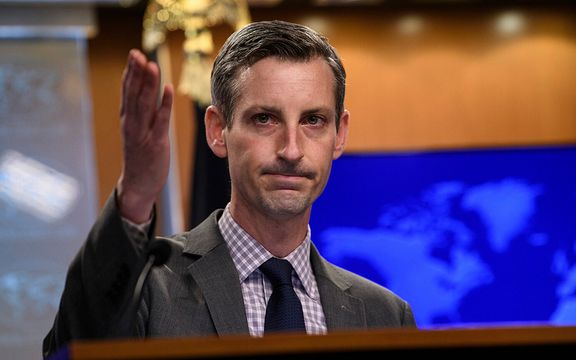
The US remained silent on a high-level visit from Israeli officials to Washington next week, reluctant to go public on behind the scenes discussions on Iran's nuclear progress.
In a press conference, State Department spokesman, Ned Price, simply said the US engages regularly with its Israeli partners. "We have traveled to the region; our Israeli partners have traveled here. I expect that will continue in the coming days, weeks, and months."
However, on Israeli news site Axios, reports claim that Israeli Minister for Strategic Affairs Ron Dermer and national security adviser Tzachi Hanegbi, are expected to visit Washington early next week for meetings with senior Biden administration officials that will focus on Iran.
The visit comes in the wake of news from a top US defense official, Colin Kahl, the undersecretary of defense for policy, that Iran will need only 12 days to enrich enough weapons-grade uranium to build one nuclear bomb.
In public, the US has said it does not believe Iran has made the decision to resume its weaponization program but Israeli Prime Minister Benjamin Netanyahu and other Israeli officials have stressed in recent weeks the need for a credible military threat against Iran.
On Tuesday, Kahl said that since the Trump administration withdrew the US from the Iran nuclear deal in 2018, Tehran's nuclear progress has been "remarkable."
He added that before the Trump administration left the nuclear agreement, Iran needed a year to break out and get enough 90% enriched uranium for one nuclear bomb.
Both Dermer and Hanegbi are at the helm of Israel's Iran policy and are expected to meet White House national security adviser Jake Sullivan, Secretary of State Tony Blinken and other senior US officials, according to Axios.
The visit takes place amidst growing domestic tensions in Israel in the wake of the new right-wing government, and tensions growing across the West Bank.
Tweet unavailable